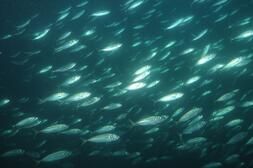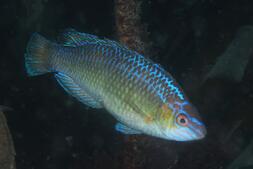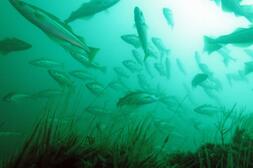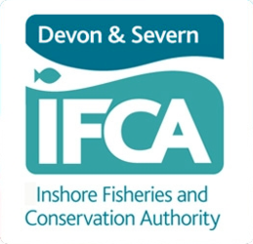Finfish Research
- Home
- Environment & Research
- Research
- Finfish Research
Page review/updated 04/12/2024
(Content of overview page last updated: 21st November 2022)
Whilst the management of inshore fisheries has been increasingly devolved to a local level, many fish stocks have distributions which span the 6nm across IFCA Districts’ seaward limits and multiple National jurisdictions. Therefore, the management of many stocks, including major data collection frameworks (such as ICES stock assessments, Water Framework Directive (WFD) Transitional and Coastal (TraC) surveys) occurs at national to international levels. In the UK, this higher-level management is administrated and enforced primarily by Defra and the Marine Management Organisation (MMO).


However, for many species the current management unit may not acknowledge finer population structure, which is significant in managing viable local stocks. Even for species with genuinely wide geographic ranges, key life-history stages may be closely linked to inshore habitats and EU management may not offer protection evenly over the species range.
New inshore fisheries have also emerged for finfish (such as the Live Wrasse Fishery), which are not covered by any EU or National legislation. Data collected to inform EU or national management are often not appropriate for informing management at a local level.
Whilst short-term project-based work helps to build on this evidence base, these projects are often short lived and are not necessarily focussed on providing evidence at the appropriate spatial scale for IFCA management.
D&S IFCA is therefore increasingly involved in the management of, or research into, finfish stocks. Development of an IFCA-level evidence framework to direct research to inform local management is required. Several of D&S IFCA’s Environment Team’s projects and workstreams aim to build the structure of this framework (e.g. Fisheries Research and Management Plans), whilst others are designed to start providing the required evidence for specific stocks.
Such work often requires collaborating as part of larger partnerships involving different regulatory agencies, academia, research, industry and NGO bodies. This work also feeds into improving the evidence base for an Ecosystem Approach to managing the marine environment and for providing evidence for responses to consultations on marine licenses.
(Photographs on this page courtesy of Keith Hiscock)
More information on specific finfish research areas can be found below:

